Sister Annabel (Sister Chan Duc)
It is a lovely day in May in EIAB, Waldbroel. How lucky we are to have eyes that can enjoy the wonderful colours and forms of spring and two good legs to take us out into the woods and pastures and the time to enjoy the beauties of nature. We do not need more than this to make us happy.
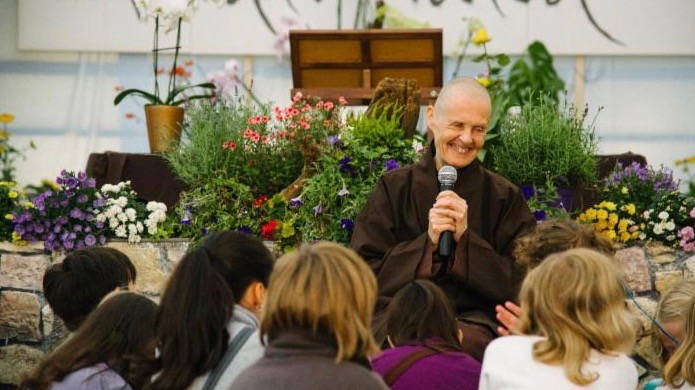
Plum Village has many centres with a monastic presence. These centres are ‘micro-environments’ which become a refuge for many people.
In Buddhism we talk about retribution. There are two kinds of retribution: the main retribution and the retribution of the environment. The main retribution is our body, feelings, perceptions, mental formations and consciousness. The environment retribution is what it sounds to be: the surroundings we live in. The two are closely connected. Our body and consciousness produce feelings and perceptions which in turn create our environment.
It is very fortunate that all the great faiths in our world have ethical guidelines. If humans did not have the capacity for ethical behaviour they would have destroyed themselves and other species already. Thay with the help of the Plum Village community have revised the Five Mindfulness Trainings to make them the Buddhist contribution to a global ethic. Someone who practises these trainings already begins to change his or her thoughts and feelings and actions and so changes the environment.
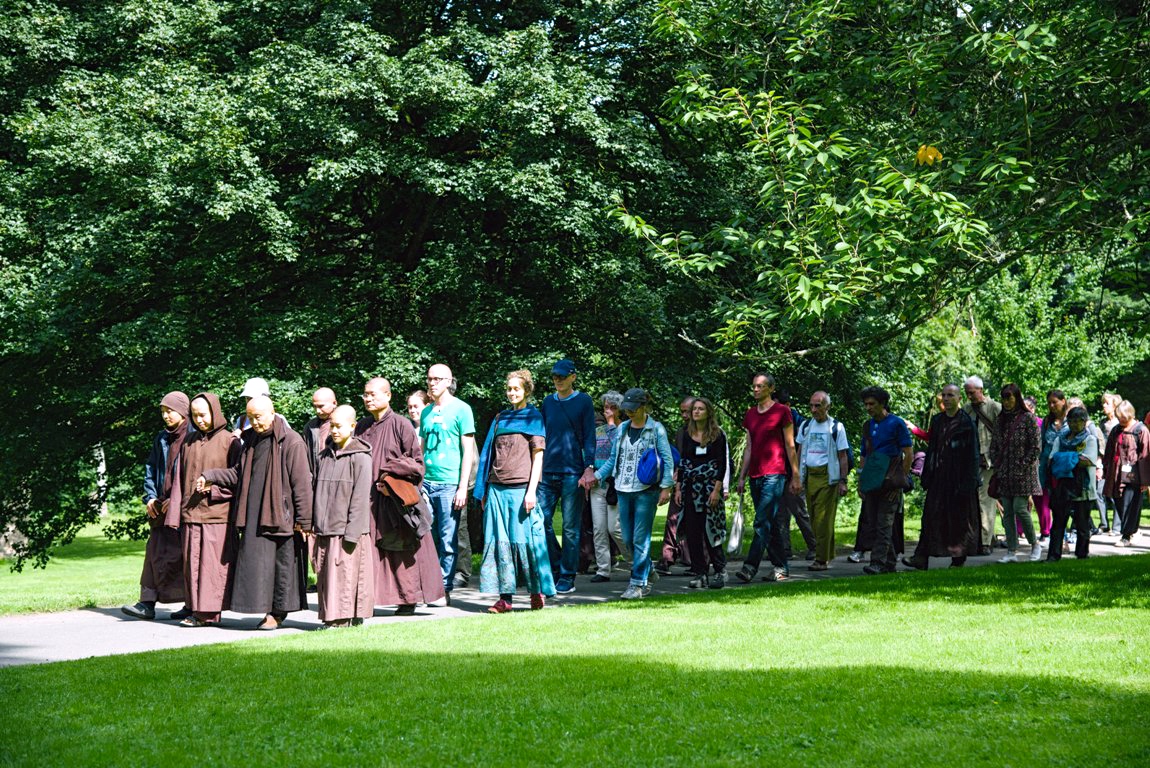
Thoughts and actions of compassion and loving kindness, joy and inclusiveness take us to live in places that are beautiful and light. Thoughts of hatred, greed and the criminal actions take us to live in places that are dark and heavy. Our feelings and our environment are closely related. We can make our environment better just by the thoughts and feelings that we have. Say that we are in Waldbroel on a beautiful spring day and we have hating thoughts. We cannot enjoy or even really see our beautiful environment. So it is very important, as far as we can, to choose the kind of thoughts and feelings that we have.
The practice of mindful breathing and walking helps us to do this. Whenever you do not feel happy, remember to breathe and to walk mindfully, enjoying every step. Every step can be pleasant if you walk in the present moment. Ask yourself when you feel bad, if there is any good reason for feeling bad and turn the bad feeling into something better. Do you feel bad because you are worrying about the future or regretting the past? Sometimes even a pleasant feeling is based on thinking something pleasant will happen to you, but this is not a truly happy feeling because it is not based on reality only on an imagination. Stop and breathe and look at the flower and smile. Look at others as fellow human beings who have the capacity to be enlightened. Be fully grateful for everything you have and fully there for anyone you are with and you will immediately feel better.
Simple daily activities like eating a meal are a chance for you to make a beautiful environment. The fifth of the five contemplations for eating reads: “We accept this food in order to nourish our brotherhood and sisterhood.” When you eat, the food will be digested in order to produce energy. If you have loving thoughts and happy feelings of gratitude as you eat you are digesting your food along with your feelings. Be aware as you eat of the kind of spiritual energy you want to arise from the food. Make the deep aspiration as you eat that you will use the food’s energy in order to produce loving thoughts, words and actions. There is no way to compassion, compassion is the way. You do not have to wait for the food to be digested to produce the energy of love for your brothers and sisters. You can do it as you eat and when you have finished eating, the energy of compassion will still be there in you and in the environment.
Our environment is the realm where we are living. It can be heaven or it can be hell and these realms do not come from outside of our consciousness. We have the freedom to choose our environment by the way we act, think and feel. Say you are sitting in front of your television screen, holding the remote control. You can change the channel very quickly by pressing a button. Your mind also has different channels which you can change by the practice of mindfulness. Mindfulness means that you recognise what is happening in your mind, you recognise whether it is creating a good or a bad environment for you. If it is creating a bad environment, you bring yourself back to the present moment with your breathing and walking and make something better.
At every moment we have the chance to sow the seeds of peace by the practice of mindfulness, concentration and insight.


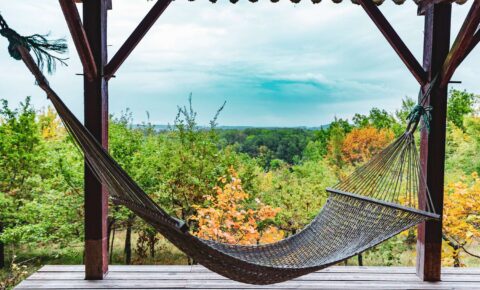
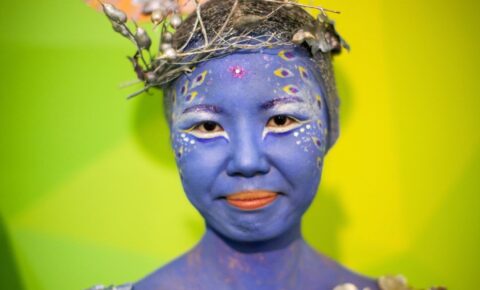
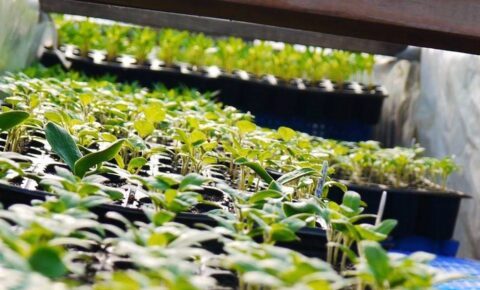
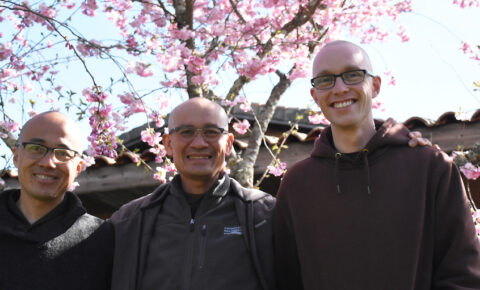
Share Your Reflections